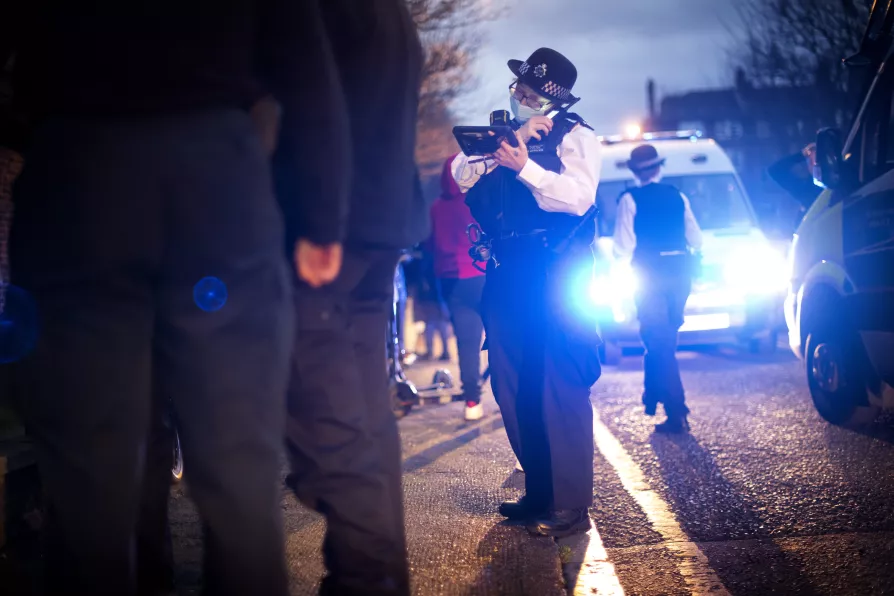Police more likely to stop and search ethnic minority people without suspicion, watchdog reveals

 A female police officer uses her radio during a stop and search of a suspect in Walworth, Southwark during an all female operation by the Metropolitan Police, the first of its kind for the force, to mark International Women's Day, March 6, 2021
A female police officer uses her radio during a stop and search of a suspect in Walworth, Southwark during an all female operation by the Metropolitan Police, the first of its kind for the force, to mark International Women's Day, March 6, 2021
POLICE are more likely to stop and search people from ethnic minority backgrounds for weapons without suspicion, an investigation by watchdogs revealed today.
Forces may “recognise the effects of disproportionality on people and communities” but “don’t take this matter seriously enough,” research into the use of so-called suspicionless section 60 stop and search powers concluded.
The probe was carried out by His Majesty’s Inspectorate of Constabulary and Fire & Rescue Services, the Independent Office for Police Conduct and the College of Policing after campaign network the Criminal Justice Alliance (CJA) submitted a super-complaint about use of the powers.
More from this author


















